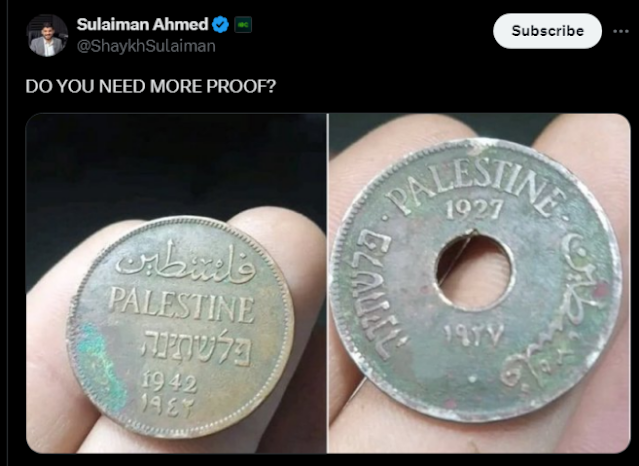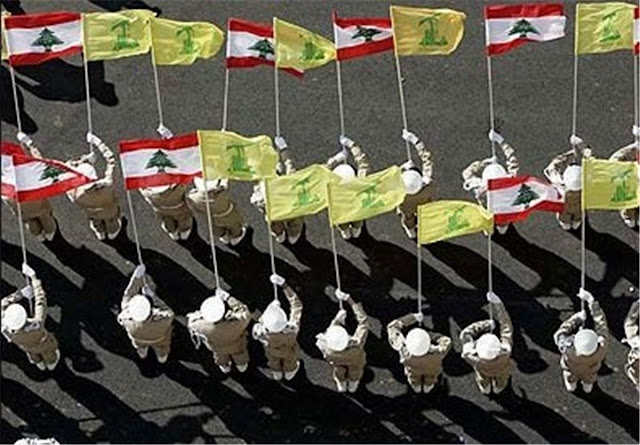Caroline Glick: Netanyahu’s ‘day after’ plan
Despite the comprehensiveness of its echo-chamber strategy of flooding the media with anti-Netanyahu innuendo, demoralizing messages of Israeli weakness and claims that Israel is trying to pull the U.S. into an unnecessary war, the administration’s messaging is hitting a wall.Michael Oren: How the Israel-Iran rope-a-dope ends
Israel’s astounding success in devastating Hezbollah’s leadership and a large percentage of its massive arsenal of projectiles increased American support for Israeli victory. Whereas a few months ago, “experts” scoffed at Netanyahu’s pledge to bring Israel “Absolute Victory” in the war, now experts like Richard Dearlove, the former head of Britain’s MI6 spy agency, are saying that Israel is on the road to achieving just that.
And so we come to Netanyahu’s day-after plan. Rebuffed by Biden-Harris, Netanyahu waited until after Israel turned the tide in the war to present his actual strategic vision for a post-war Middle East to the administration. He outlined it in two English-language video messages, first to the Iranian people and then to the Lebanese people.
In both videos, he described how Iran and Hezbollah, respectively, have destroyed Iran and Lebanon. Israel, he explained to the Lebanese, has weakened Hezbollah sufficiently for the Lebanese people to rise up against it.
In his words, “We have degraded Hezbollah’s capabilities; we took out thousands of terrorists, including Nasrallah himself, and Nasrallah’s replacement, and the replacement of his replacement. Today, Hezbollah is weaker than it has been for many, many years.
“Now you, the Lebanese people, you stand at a significant crossroads. It is your choice. You can now take back your country.”
He told the Iranians, “You know one simple thing, Iran’s tyrants don’t care about your future. But you do.”
He told the Iranian people that Iran will be freed from the regime “a lot sooner than people think,” and presented them with a vision of peace after its fall.
“Our two countries, Israel and Iran, will be at peace. When that day comes, the terror network that the regime built in five continents will be bankrupt, dismantled. Iran will thrive as never before.”
Netanyahu’s vision is the opposite of the Obama-Biden-Harris vision. And the American public supports it. This state of affairs limits the administration’s capacity to block Israel’s plans in relation to its much-vaunted retaliatory strike following Iran’s missile assault on Oct. 1.
The Biden-Harris team’s efforts to bar Israel from attacking either Iran’s nuclear installations or its oil installations involve the familiar mix of contradictory messaging and political and strategic subversion that we have experienced from Democratic administrations since 2009. On the one hand, the U.S. supports Israel. On the other hand, the administration has flooded the media with its claims that Israel is too weak to take effective action, that its efforts are geared towards dragging the U.S. into a war, and that Iran poses no threat to anyone.
All the same, Israel’s unexpected and demoralizing delays in carrying out its retaliatory attack on Iran raise fears that the administration is successfully blocking Israel from taking any strategically meaningful action against the regime. If that is in fact the case, the momentum Israel gained from its stunning intelligence operations and airstrikes against Hezbollah will be squandered. The conviction will resurface that Israel doesn’t have what it takes to win the war.
While a source of anxiety, the prospect that Netanyahu will stand down now is minuscule. Israel’s momentum is too strong. Iranians and Lebanese, empowered by Israel’s achievement, are already echoing his messaging. The administration’s continued demands for immediate ceasefires and Israeli strategic reticence strike the average American and U.S. ally as irrational and out of step with events.
While the shape of things to come is still unknowable, it is clear that Iran wasn’t the only party whose strategic goals were undermined by Israel’s seizure of the upper hand in this war. The Obama-Biden-Harris foreign policy establishment’s Iran-centric vision of the Middle East was also scuttled.
Iran’s haymaker is coming, and the only question is whether Israel is prepared to deliver ours first. Can Israel, in classic boxing fashion, use Iran’s strategy against it? Will Israel emulate Muhammad Ali, the greatest pugilist of all time, in adopting the tactic of “rope-a-dope?”Victor Davis Hanson: Biden and Harris, own up: your Iran policies ignited Israel’s war
Though not taught to me by my father, “rope-a-dope” was known to all sports fans of my generation. Ali would simply put his gloves up, covering his face, and let his opponent pound them repeatedly to no effect. Finally, with the challenger utterly fatigued, Ali would inflict his lethal right. An eight-count would follow, concluding with a bell.
Israel, too, could play rope-a-dope with Iran, parlaying its proxies’ attacks while wearing down the Ayatollahs’ resources. We could also lead them to believe that we’re concentrating solely on their left jabs and ignoring their impending right. We could lull them into a worn-out sense of security and then, unexpectedly, deliver the knock-out.
My father’s lessons worked. When next accosted by the Jew-hating bully, I suggested that we fight like gentlemen and challenged him to a match. We each got a pair of the Everlasts and started to box. Hackneyed as it sounds, he never laid a glove on me. Rather, I let him tire and fluster himself blocking my lefts until I could exploit his unguarded face. The bell – had there been one – pealed my victory.
I recalled that experience while reviewing our many rounds of conflict with Iran. They cannot conclude with a tie. My father, of blessed memory, would tell us, as he once assured me, now is our chance to strike. We may not get another.
It was the terrorists of Hamas who surprise-attacked and murdered 1,200 Israeli civilians during peace and on a Jewish holiday.
Their slaughtering, torturing, raping and hostage-taking revealed a level of pre-civilization barbarism rarely seen in the modern era.
Israel was simultaneously targeted by rockets from Hamas and Hezbollah that would eventually number over 20,000.
It did not respond to the bloodbath with a full-scale invasion of Gaza until Oct. 27, some three weeks after the slaughtering.
During that interim, for most of the Muslim world and both US Muslim communities and on American campuses, there was rejoicing at the news of slaughtered Jews.
For over three years, Biden-Harris had signaled Israel’s enemies that the United States no longer acted like a close ally of the past.
The administration lifted sanctions on a hostile Iran, giving it $100 billion in oil windfalls.
It begged Iran to reenter the disastrous Iran deal.
It abandoned the Abraham Accords.
It lifted the terrorist designation from the terrorist Houthis.
It restored fungible aid to the Hamas tunnel builders.
It gave new aid to Hezbollah-controlled Lebanon.
Israel’s enemies got the Biden message: Attack the Jewish state and perhaps Americans for the first time in a half-century may not really mind that much.
And so they did, in unison.
Rather than admitting their own role in igniting the Middle East, Biden and Harris now blame the victims of their own incendiary foreign policy.
The final irony?
Israel has concluded that Biden-Harris foolhardiness can be toxic — and endanger its very survival — and so will not agree to its own suicide.
What do you think? Post a comment.
Instead, Israel seeks to finish a multifaceted war it did not seek.
And one of the beneficiaries of Israeli blood and treasure will be the United States itself, given Israel is now systematically weakening America’s own existential enemies.



















.jpg)











.jpeg)






















